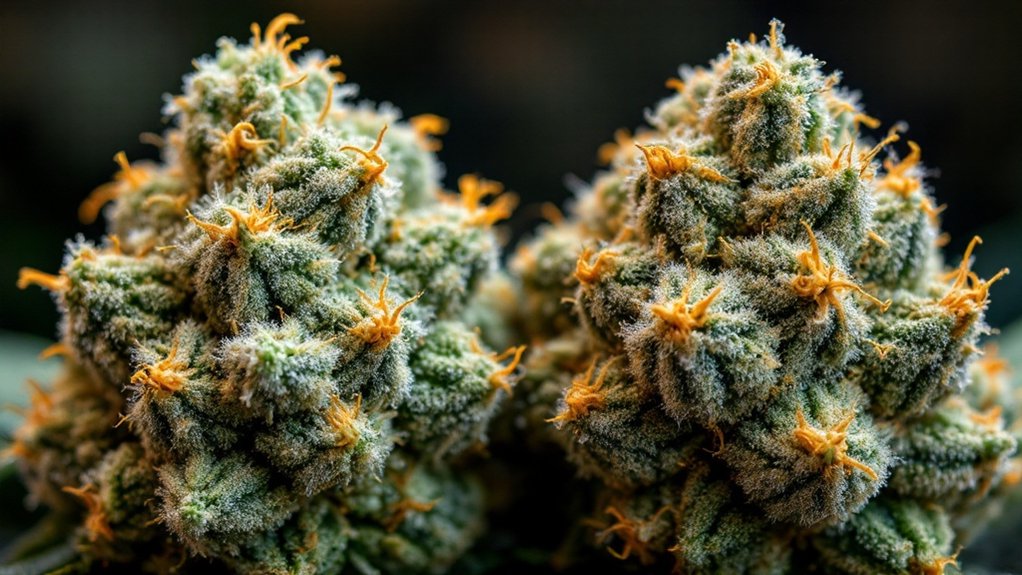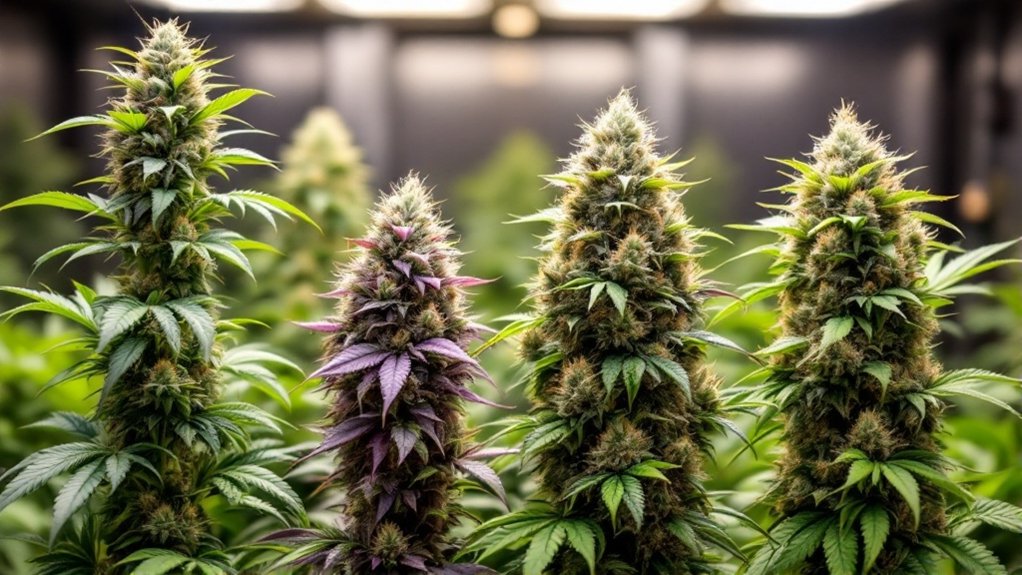A Guide to Hiring, Managing, and Retaining Top Talent
Building a successful cannabis business requires more than just understanding cultivation or retail operations, it demands assembling the right team to execute your vision. Cannabis operators face unique HR challenges like navigating complex background check requirements to competing for specialized talent in an industry still overcoming decades of stigma.
Whether you’re a startup dispensary hiring your first budtenders or an established cultivator scaling your extraction team, this takes a look at the strategies you need to build a high-performing workforce that drives your cannabis business forward.

The Cannabis Talent Landscape
The Unique Cannabis Employment Challenge
When Sarah Martinez left her finance role at a Fortune 500 company to join a cannabis cultivation facility as CFO, she discovered that traditional recruitment playbooks simply don’t work in this industry. Despite her extensive experience in regulated industries, she spent months struggling to find qualified candidates willing to make the leap into cannabis. Her story illustrates a fundamental reality facing cannabis operators today, building a talented workforce requires navigating challenges that don’t exist in other industries.
Cannabis businesses operate in a talent environment that sits at the intersection of rapid growth, regulatory complexity, and lingering social stigma. While the industry has evolved dramatically from its underground origins, professionalizing at breakneck speed over the past decade, operators continue to face hiring obstacles that demand specialized strategies and patience.
The stigma challenge runs deeper than many operators initially realize. Even in states where cannabis has been legal for years, talented professionals from traditional industries often hesitate to make the career transition. A marketing director from the alcohol industry might worry about explaining a cannabis role to future employers outside the industry. An experienced accountant might concern themselves with how cannabis experience affects their professional license or future opportunities. These concerns aren’t entirely unfounded, while attitudes continue shifting, some professional networks and future employers still view cannabis industry experience skeptically.
This perception challenge creates a self-reinforcing cycle. Because experienced professionals are reluctant to enter cannabis, the industry faces a persistent skills gap that makes existing cannabis professionals increasingly valuable and expensive to hire. A compliance officer with three years of cannabis experience can command salary premiums of 20-30% over comparable roles in other regulated industries, not because the work is necessarily more complex, but because so few people have the specific experience cannabis companies desperately need.
Banking and payroll complications add another layer of difficulty that traditional industries never encounter. When a cannabis business can’t offer direct deposit or struggles to provide standard benefits packages due to banking limitations, they’re immediately at a disadvantage when competing for talent accustomed to seamless financial benefits. Candidates often interpret these operational limitations as signs of business instability or unprofessionalism, even when the company is otherwise well-managed and profitable.
The regulatory background check requirements present perhaps the most frustrating hiring challenge for cannabis operators. State licensing often demands extensive background investigations that eliminate otherwise qualified candidates for minor infractions completely unrelated to job performance or integrity. A budtender position might require the same level of background scrutiny as a pharmaceutical sales role, despite the dramatically different responsibilities and risk profiles. This creates situations where a candidate with a decade of retail management experience becomes ineligible for a cannabis retail position due to a minor charge from their college years.
Industry data reveals that cannabis businesses experience turnover rates approximately 75% higher than comparable retail and manufacturing sectors. This statistic reflects not just hiring challenges, but the unique stresses cannabis employees face. The regulatory pressure, the professional uncertainty, and the rapid pace of industry change create workplace environments that can burn out even dedicated employees faster than traditional industries.
As the cannabis market matures, competition for experienced professionals intensifies exponentially. A cultivation manager who successfully scaled operations through multiple regulatory changes becomes a coveted asset. These professionals understand not just the technical aspects of their roles, but the intricate dance between operational efficiency and regulatory compliance that defines success in cannabis. The result is a talent market where experienced cannabis professionals can be extraordinarily selective about opportunities, often commanding compensation packages that stretch startup budgets to their limits.
Building Your Hiring Strategy Foundation
Recognizing these challenges represents only the first step toward building an effective cannabis workforce. Successful operators develop comprehensive strategies that acknowledge industry realities while positioning their companies as desirable destinations for both cannabis-experienced professionals and talented individuals considering their first move into the industry.
The foundation of successful cannabis hiring begins with honest brand positioning that addresses candidate concerns head-on. Rather than avoiding the industry’s challenges, winning companies embrace them as opportunities to demonstrate professionalism and vision. They craft messaging that positions cannabis work as pioneering professional territory where talented individuals can build expertise in an emerging industry while contributing to meaningful social and economic change.
This messaging must extend beyond job postings into every candidate interaction. When a hiring manager speaks with a potential employee, they should be prepared to address career progression concerns, explain how cannabis experience translates to other industries, and demonstrate the company’s commitment to professional development and industry advancement. Companies that successfully recruit talent from traditional industries often emphasize their commitment to bringing business best practices into cannabis, positioning candidates as leaders in industry professionalization rather than participants in a niche or temporary market.
Compensation philosophy becomes critical in this environment. Cannabis companies rarely can match the base salaries offered by established industries, but they can offer compelling total compensation packages that account for industry growth potential and professional development opportunities. Successful operators think creatively about benefits, offering equity participation, professional development budgets, industry conference attendance, and career advancement opportunities that may not exist in more mature industries.
The cultural foundation must balance professional credibility with industry innovation. Cannabis companies need workplace cultures that would feel familiar to professionals from traditional industries while embracing the entrepreneurial spirit and social mission that attracts many people to cannabis in the first place. This means maintaining professional standards for communication, accountability, and performance while fostering environments where employees feel proud to explain their work to friends and family outside the industry.
Retention planning becomes essential given the high costs of cannabis industry turnover. Companies must build career development paths that help employees envision long-term professional growth within the organization and the broader cannabis industry. This means creating advancement opportunities even in flat organizational structures, providing cross-training that builds valuable skill sets, and maintaining clear communication about company growth plans and how employees fit into that future.
Essential Components of Cannabis HR Strategy:
- Brand Positioning: Develop messaging that positions your company as professional, growth-oriented, and committed to industry advancement
- Compensation Philosophy: Create competitive packages that account for industry risks and growth potential
- Cultural Foundation: Establish workplace culture that professionalizes cannabis while embracing industry innovation
- Retention Planning: Build career development paths that encourage long-term employee investment.

The Hiring Process
Pre-Hiring: Setting Up for Success
Developing Job Descriptions That Attract Quality Candidates
The job description often represents a candidate’s first impression of your cannabis business, making it a critical tool for attracting quality talent while filtering out unsuitable applicants. Cannabis job descriptions walk a delicate line between professionalism and industry authenticity, requiring careful crafting that addresses candidate concerns while accurately representing role requirements.
Many cannabis operators make the mistake of either overselling the glamorous aspects of the industry or underselling the professional nature of their operations. The most effective job descriptions acknowledge cannabis industry realities while positioning roles as legitimate career opportunities. They speak directly to the concerns that qualified candidates harbor about cannabis careers, addressing stigma, explaining growth potential, and demonstrating business professionalism.
Consider how you frame cannabis industry experience requirements. Rather than demanding extensive cannabis background for all roles, successful operators distinguish between positions requiring specific cannabis knowledge and those where transferable skills from related industries prove more valuable. A retail manager position might prioritize customer service and team leadership experience over cannabis product knowledge, while an extraction technician role necessarily requires specific technical expertise with cannabis processing methods.
Essential Elements for Cannabis Job Descriptions:
- Clear Role Expectations: Specify cannabis industry experience requirements vs. transferable skills
- Growth Potential: Highlight career advancement opportunities in expanding industry
- Professional Environment: Emphasize business professionalism and regulatory compliance focus
- Industry Education: Include commitment to ongoing cannabis industry training and development
- Compensation Transparency: Where legally permissible, include salary ranges to attract serious candidates
The growth potential messaging proves particularly important for attracting candidates from traditional industries. Emphasize how cannabis industry experience positions professionals at the forefront of a rapidly expanding market, providing opportunities to build expertise that will become increasingly valuable as the industry matures. Mention specific advancement opportunities within your organization and the broader industry trajectory.
Professional environment emphasis helps address stigma concerns while setting appropriate expectations. Describe your workplace culture in terms that professionals from any industry would recognize, emphasizing accountability, continuous improvement, team collaboration, and results. This messaging signals to quality candidates that your cannabis business operates with the same professional standards they expect from traditional employers.
Sourcing Cannabis Talent: Where to Find Qualified Candidates
Cannabis talent sourcing requires a fundamentally different approach than traditional industries. The usual recruitment channels, corporate job boards, headhunting firms, university recruiting programs often lack the specialized networks necessary to identify quality cannabis industry candidates. Successful operators develop multi-channel sourcing strategies that combine cannabis-specific platforms with creative approaches to traditional recruitment methods.
The challenge extends beyond simply posting jobs in the right places. Cannabis hiring requires building relationships within industry networks, understanding the unique motivations that drive professionals to consider cannabis careers, and developing compelling messaging that addresses the specific concerns cannabis candidates harbor about role transitions and career progression.
Effective Cannabis Recruitment Channels:
- Cannabis Industry Job Boards: Platforms like CannabisJobs, HempStaff, and Vangst specialize in cannabis talent
- Industry Events and Conferences: Cannabis trade shows provide networking opportunities with experienced professionals
- Professional Cannabis Organizations: Groups like Women Grow and Minorities for Medical Marijuana offer diverse talent networks
- Employee Referral Programs: Cannabis professionals often know others in the industry, incentivize employee referrals
- Cannabis Education Programs: Partner with cannabis training programs and colleges offering cannabis curricula
- Traditional Channels with Cannabis Messaging: LinkedIn, Indeed, and Glassdoor can work when messaging emphasizes professionalism and growth
Cannabis industry job boards connect you with candidates already committed to cannabis careers, but they represent a relatively small talent pool. The most valuable candidates often aren’t actively job searching but could be persuaded to consider compelling opportunities. This makes relationship building at industry events particularly valuable, conferences, trade shows, and professional organization meetings provide access to passive candidates who might never see your online job postings.
Employee referral programs prove especially effective in cannabis because industry professionals tend to know each other across companies and regions. Cannabis remains a relatively small industry where reputation and relationships matter enormously. A strong employee referral program can tap into these networks while also signaling to your team that you value their judgment and want to build a workplace they’re proud to recommend to colleagues.
The Cannabis Interview Process
Screening for Cannabis Industry Fit
Cannabis industry interviews must evaluate capabilities that traditional interviews rarely assess. Beyond standard qualifications and experience, cannabis roles require candidates who can thrive under regulatory pressure, adapt quickly to changing rules and market conditions, and maintain professionalism while working in an industry that still faces social and legal challenges.
The screening process should evaluate not just what candidates can do, but how they’ll handle the unique stresses and opportunities that define cannabis business operations. This means assessing psychological factors like comfort with ambiguity, resilience under pressure, and ability to maintain professional standards in unconventional business environments.
Key Screening Criteria:
- Regulatory Comfort Level: Assess candidate comfort with extensive compliance requirements
- Industry Passion vs. Professionalism: Look for genuine interest balanced with business focus
- Adaptability: Evaluate ability to handle rapid industry changes and regulatory updates
- Discretion and Security Mindset: Important for roles involving product handling and sensitive information
- Cultural Alignment: Ensure candidate values align with your company’s cannabis industry positioning
Regulatory comfort level assessment requires more than asking candidates if they’re comfortable following rules. Cannabis regulations are extensive, detailed, and carry serious consequences for violations. Effective screening explores how candidates have handled high-stakes compliance situations in previous roles, their approach to documentation and record-keeping, and their ability to maintain attention to detail under pressure. Look for candidates who view compliance as a professional challenge rather than a burdensome restriction.
The passion versus professionalism balance proves particularly critical in cannabis hiring. You want candidates genuinely interested in the industry as passionate employees tend to be more engaged and committed to professional development. However, excessive focus on cannabis culture or lifestyle aspects can signal candidates who may struggle with the business realities of cannabis operations. The strongest candidates demonstrate enthusiasm for cannabis industry opportunities while maintaining clear focus on business objectives and professional growth.
Background Check Considerations
Businesses must navigate background check requirements that create ethical dilemmas and practical challenges. State licensing regulations often demand extensive background investigations that can eliminate qualified candidates for infractions completely unrelated to job performance or integrity. This creates situations where cannabis businesses, operating in an industry built around a formerly illegal product must exclude candidates for minor marijuana-related offenses or other infractions that wouldn’t disqualify candidates in traditional industries.
The irony isn’t lost on operators or candidates: an industry advocating for criminal justice reform around cannabis prosecutions must often exclude candidates with cannabis-related criminal histories. This reality requires thoughtful policies that balance regulatory compliance with fair hiring practices and organizational values around second chances and criminal justice reform.
Background Check Best Practices:
- Understand State Requirements: Research specific background check requirements for cannabis licensing in your state
- Develop Clear Policies: Create written policies outlining disqualifying offenses vs. case-by-case review criteria
- Focus on Relevant History: Distinguish between cannabis-related infractions and serious disqualifying offenses
- Legal Consultation: Work with employment attorneys familiar with cannabis regulations
- Transparent Communication: Clearly communicate background check policies during the hiring process
Understanding state requirements means more than reading the regulations, it requires consulting with licensing attorneys who understand how regulatory agencies actually interpret and enforce background check requirements. Regulations often include ambiguous language about “good moral character” or “fitness for licensing” that can be interpreted differently by different agencies or regulatory staff. Getting clear guidance on these interpretations helps you develop policies that comply with requirements without being unnecessarily restrictive.
Transparent communication about background check policies should happen early in the hiring process, ideally in job postings or initial candidate communications. Candidates appreciate understanding disqualifying factors before investing time in lengthy application processes. This transparency also demonstrates the professional, compliant approach that quality candidates expect from cannabis employers.
Reference Checks and Final Evaluation
Cannabis Industry Reference Verification
Reference checks in cannabis require enhanced diligence given the industry’s relative newness and the critical importance of regulatory compliance in all operations. Traditional reference checks focus primarily on job performance and cultural fit, but cannabis reference checks must also evaluate candidates’ approaches to compliance, their handling of industry-specific challenges, and their commitment to professional development in a rapidly evolving field.
The industry’s small, interconnected professional community can make reference checks both easier and more complex. On one hand, industry professionals often know each other across companies and regions, providing access to detailed insights about candidates’ reputations and performance. On the other hand, this tight network means that reference feedback, positive or negative can quickly circulate through industry channels, making discretion and professionalism essential throughout the reference process.
Enhanced Reference Check Process:
- Regulatory Compliance History: Inquire about candidate’s approach to compliance and any regulatory issues
- Cannabis Industry Performance: Ask about specific cannabis industry challenges and how candidate handled them
- Professional Growth: Evaluate candidate’s commitment to professional development in cannabis
- Cultural Fit Indicators: Assess how candidate interacted with teams in cannabis environment
Compliance history assessment goes beyond asking whether candidates ever violated regulations. Instead, explore how candidates approach compliance challenges, their attention to detail in documentation and record-keeping, and their ability to stay current with changing regulations. Ask references about candidates’ responses to regulatory inspections, their participation in compliance training, and their contributions to developing or improving compliance procedures.
Cannabis industry performance evaluation should focus on situations that don’t exist in traditional industries. How did the candidate handle banking challenges that affected payroll or vendor payments? How did they manage customer education about products in a market with limited advertising options? How did they adapt when regulations changed mid-project? These cannabis-specific scenarios reveal capabilities that traditional reference checks never uncover.

Roles & Hiring Strategies
Executive and Management Roles
Chief Executive Officer (CEO)
CEOs require unique leadership skills that blend traditional business acumen with cannabis-specific expertise and regulatory navigation abilities.
Key Qualifications:
- Business Leadership Experience: Proven track record of scaling businesses, preferably in regulated industries
- Regulatory Environment Experience: Background in heavily regulated sectors (pharmaceuticals, alcohol, financial services)
- Industry Vision: Understanding of cannabis market dynamics and future growth potential
- Stakeholder Management: Ability to work with investors, regulators, and community stakeholders
- Team Building: Experience recruiting and developing talent in emerging industries
Recruitment Strategy:
- Executive Search Firms: Partner with recruiters specializing in cannabis or regulated industries
- Industry Networks: Leverage cannabis industry executive networks and board connections
- Adjacent Industries: Target executives from alcohol, pharmaceutical, or other regulated consumer goods
- Growth Company Experience: Prioritize leaders with experience scaling businesses in emerging markets
Chief Financial Officer (CFO)
Cannabis CFOs face unique financial challenges including banking limitations, complex tax situations, and cash management requirements.
Key Qualifications:
- Cash Business Experience: Background managing cash-heavy operations and banking challenges
- Tax Complexity: Understanding of 280E and other cannabis-specific tax implications
- Regulatory Reporting: Experience with detailed regulatory financial reporting requirements
- Growth Finance: Ability to manage rapid growth financing and investor relations
- Risk Management: Expertise in financial risk management for regulated industries
Operations Manager/Director
Operations leaders in cannabis must balance efficiency with strict regulatory compliance across cultivation, manufacturing, or retail operations.
Critical Skills:
- Process Optimization: Experience improving operational efficiency while maintaining compliance
- Regulatory Knowledge: Deep understanding of cannabis operations regulations
- Quality Control: Background in quality management systems and product safety
- Team Leadership: Ability to manage diverse operational teams in regulated environment
- Technology Integration: Experience implementing and managing cannabis business technology
Compliance and Legal Roles
Compliance Officer
Compliance officers are critical for cannabis businesses, requiring specialized knowledge of cannabis regulations and risk management expertise.
Key Qualifications:
- Cannabis Regulatory Knowledge: Deep understanding of state and local cannabis regulations
- Risk Assessment: Ability to identify and mitigate regulatory risks across business operations
- Process Development: Experience creating and implementing compliance procedures
- Training and Education: Skills in developing compliance training programs for staff
- Regulatory Relations: Ability to work effectively with regulatory agencies and inspectors
Recruitment Strategy:
- Regulatory Agency Background: Target former regulators with cannabis industry experience
- Legal Industry: Recruit from law firms specializing in cannabis or regulatory law
- Adjacent Regulated Industries: Consider candidates from pharmaceuticals, alcohol, or financial services compliance
- Cannabis Industry Movement: Target compliance professionals looking to advance within cannabis
Cultivation and Production Roles
Head Grower/Cultivation Manager
Cultivation leadership requires unique combination of horticultural expertise, regulatory compliance knowledge, and business management skills.
Key Qualifications:
- Horticultural Education: Degree in horticulture, agriculture, or related field preferred
- Cannabis Growing Experience: Proven track record of successful cannabis cultivation
- Facility Management: Experience managing indoor growing facilities and environmental controls
- Quality Control: Knowledge of testing requirements and quality assurance protocols
- Team Leadership: Ability to manage cultivation teams and optimize productivity
- Regulatory Compliance: Understanding of cultivation regulations and inspection processes
Cultivation Technician/Grower
Skilled cultivation technicians form the backbone of successful cannabis growing operations.
Key Qualifications:
- Plant Care Expertise: Knowledge of cannabis plant lifecycle and cultivation techniques
- Equipment Operation: Ability to operate and maintain cultivation equipment
- Attention to Detail: Precision in following cultivation protocols and maintaining records
- Physical Requirements: Ability to perform physical cultivation tasks in controlled environments
- Learning Orientation: Willingness to continuously improve cultivation skills and knowledge
Extraction Technician
Cannabis extraction requires specialized technical skills and strict safety protocol adherence.
Skill Requirements:
- Technical Education: Background in chemistry, engineering, or related technical field
- Safety Training: Certification in hazardous materials handling and safety protocols
- Equipment Experience: Experience with extraction equipment and maintenance procedures
- Quality Focus: Understanding of extraction quality control and testing requirements
- Regulatory Knowledge: Familiarity with extraction facility regulations and compliance
Retail and Customer Service Roles
Budtender/Cannabis Consultant
Budtenders serve as the face of cannabis retail operations, requiring product knowledge, sales skills, and regulatory compliance understanding.
Essential Budtender Qualifications:
- Product Knowledge: Understanding of cannabis products, effects, and consumption methods
- Customer Service: Strong interpersonal skills and customer service orientation
- Sales Ability: Ability to make product recommendations and drive sales growth
- Regulatory Compliance: Knowledge of retail cannabis regulations and ID verification procedures
- Cash Handling: Experience with cash transactions and point-of-sale systems
- Professional Presentation: Ability to represent cannabis business professionally
Retail Manager/Assistant Manager
Retail managers oversee daily dispensary operations while ensuring regulatory compliance and customer satisfaction.
Key Requirements:
- Retail Management Experience: Background managing retail operations and teams
- Cannabis Industry Knowledge: Understanding of cannabis products and retail regulations
- Inventory Management: Experience with inventory control and cannabis tracking systems
- Staff Development: Ability to train and develop budtender teams
- Customer Relations: Skills in handling customer issues and building loyalty programs
- Financial Management: Experience with retail financial management and reporting
Administrative and Support Roles
Marketing Manager/Coordinator
Cannabis marketing requires navigating complex advertising restrictions while building brand awareness and customer loyalty.
Cannabis Marketing Manager Skills:
- Regulatory Marketing: Understanding of cannabis advertising regulations and restrictions
- Digital Marketing: Experience with compliant digital marketing strategies and channels
- Brand Development: Ability to build professional cannabis brand identity and messaging
- Community Engagement: Skills in developing local community relationships and partnerships
- Content Creation: Ability to create educational and compliant marketing content
- Event Management: Experience planning and executing cannabis industry events and promotions
Administrative Assistant/Office Manager
Administrative roles in cannabis require understanding of industry-specific processes and regulatory requirements.
Administrative Role Requirements:
- Cannabis Industry Knowledge: Basic understanding of cannabis business operations and terminology
- Regulatory Documentation: Experience with detailed record-keeping and regulatory reporting
- Office Management: Strong organizational skills and office administration experience
- Vendor Relations: Ability to work with cannabis industry vendors and service providers
- Professional Communication: Skills in representing cannabis business professionally in communications
Compensation and Benefits
Understanding Cannabis Salary Markets
Cannabis compensation varies significantly by role, location, and company maturity. Operators need current market data to attract and retain top talent while managing labor costs effectively.
Factors Affecting Cannabis Compensation:
- Geographic Location: Legal cannabis markets vary dramatically in salary ranges
- Company Stage: Startups vs. established operators offer different compensation structures
- Role Specialization: Cannabis-specific roles often command premium over adjacent industries
- Regulatory Risk: Some positions carry regulatory exposure that affects compensation expectations
- Growth Potential: Equity and advancement opportunities can offset lower base salaries
Salary Ranges by Role Category (National Averages):
Executive Roles:
- CEO: $120,000 – $300,000+ (varies significantly by company size and market)
- CFO: $100,000 – $250,000
- Operations Director: $80,000 – $180,000
- Compliance Officer: $60,000 – $120,000
Cultivation Roles:
- Head Grower: $60,000 – $120,000
- Cultivation Manager: $50,000 – $90,000
- Cultivation Technician: $35,000 – $55,000
- Extraction Technician: $40,000 – $70,000
Retail Roles:
- Store Manager: $45,000 – $75,000
- Assistant Manager: $35,000 – $55,000
- Budtender: $28,000 – $45,000 (plus tips in many markets)
Administrative Roles:
- Marketing Manager: $50,000 – $90,000
- Administrative Assistant: $30,000 – $50,000
Note: Ranges vary significantly by market. Mature markets like California and Colorado typically offer 15-25% higher compensation than newer markets.
Benefits and Prerequisites
Navigating Banking Limitations for Employee Benefits
Cannabis businesses’ banking challenges affect traditional benefits administration, requiring creative solutions for competitive benefits packages.
Benefits Strategies for Cannabis Operators:
- Third-Party Benefits Administration: Partner with benefits providers experienced in cannabis industry banking challenges
- Cash-Friendly Benefits: Offer benefits that work well with cash-based payroll systems
- Industry-Specific Perks: Provide benefits that appeal to cannabis industry professionals
- Professional Development: Invest in cannabis industry training and conference attendance
- Flexible Scheduling: Offer work-life balance benefits that don’t require banking integration
Recommended Benefits Package Components:
- Health Insurance: Essential for attracting professional talent
- Retirement Plans: 401(k) or similar retirement benefits when banking permits
- Professional Development: Cannabis industry training, certification, and conference attendance
- Product Allowances: Where legally permitted, employee cannabis product allowances
- Flexible PTO: Generous time-off policies to support work-life balance
- Performance Bonuses: Cash-based incentive programs for goal achievement
Equity and Long-Term Incentives
Using Equity to Attract and Retain Talent
Cannabis companies can leverage equity compensation to compete for talent even when cash compensation may be limited.
Equity Compensation Strategies:
- Employee Stock Options: Offer options with vesting schedules tied to performance and tenure
- Restricted Stock Awards: Provide direct equity ownership with vesting requirements
- Performance-Based Equity: Link equity grants to company and individual performance metrics
- Key Employee Retention: Use larger equity packages to retain critical team members
Structuring Equity Programs:
- Vesting Schedules: Typically 3-4 year vesting with 1-year cliff to encourage retention
- Performance Metrics: Tie vesting to revenue growth, compliance scores, or operational milestones
- Exit Strategy Communication: Help employees understand potential equity value in various exit scenarios
- Legal Documentation: Work with cannabis industry attorneys to structure compliant equity programs

Employee Onboarding and Training
Employee onboarding requires a specialized approach that balances comprehensive regulatory training with role-specific skill development. Businesses must establish professional standards while helping new employees navigate complex regulatory requirements that affect every aspect of daily operations.
Regulatory and Safety Foundation
New cannabis employees need immediate immersion in the regulatory framework that governs their work. This foundation training covers cannabis regulations specific to their role, documentation requirements for seed-to-sale tracking, security protocols for product handling, and safety procedures unique to cannabis operations. Employees must understand that regulatory compliance represents a core business function, not an administrative afterthought.
The regulatory foundation also introduces cannabis-specific documentation standards that exceed traditional business requirements. Every cannabis employee must learn detailed record-keeping procedures that track product movement, maintain inventory accuracy, and support regulatory reporting requirements.
Role-Specific Training and Product Knowledge
Cannabis product knowledge training must be comprehensive regardless of employee role, as even non-customer-facing staff need basic understanding of products, effects, and consumption methods to communicate effectively within cannabis operations. Customer-facing employees require deeper product expertise that enables confident customer education and consultation.
Technology training focuses on seed-to-sale systems that integrate inventory management, compliance tracking, and business operations in sophisticated platforms unique to cannabis. Employees need thorough training on these systems plus ongoing support as software updates frequently introduce new features or compliance requirements.
Professional Development and Cultural Integration
Businesses should share their mission and brand identity, provide clear professional standards that help employees represent both their employer and the broader cannabis industry with credibility. This includes communication standards, professional appearance expectations, and approaches to discussing cannabis work with external audiences.
Career development discussions during onboarding help employees understand advancement opportunities within the cannabis industry while identifying professional development resources that support continued growth. Cannabis businesses should provide clear pathways for skill building and career progression that justify employees’ decisions to enter the industry.
Ongoing Integration and Advanced Training
Extended onboarding can continue beyond initial orientation with advanced compliance training that covers complex scenarios employees encounter in daily operations. This helps develops judgment and problem-solving capabilities that enable independent decision-making while maintaining regulatory compliance.
Cannabis industry networking opportunities help new employees build professional relationships that support career development while connecting them to broader industry communities. Performance evaluation during extended onboarding ensures employees receive clear feedback while identifying areas for continued development.
Compliance Training Programs
Essential Regulatory Training Topics
All cannabis employees need comprehensive compliance training that goes beyond basic orientation to ensure ongoing regulatory adherence.
Core Compliance Training Modules:
- State Cannabis Regulations: Detailed coverage of applicable state cannabis laws
- Local Ordinances: Municipal and county-specific cannabis regulations
- Security Requirements: Protocols for product security and facility protection
- Record Keeping: Documentation requirements and systems usage
- Quality Control: Testing requirements and quality assurance procedures
- Age Verification: ID checking procedures and fake ID detection
- Inventory Management: Seed-to-sale tracking and inventory control
- Emergency Procedures: Protocols for regulatory violations, product recalls, and incidents
Ongoing Compliance Education:
- Monthly Updates: Regular training on regulatory changes and updates
- Scenario-Based Learning: Real-world compliance challenges and solutions
- Cross-Department Training: Understanding compliance across all business functions
- Certification Programs: Industry-recognized compliance certifications
- Assessment and Testing: Regular evaluation of compliance knowledge retention
Professional Development
Building Cannabis Career Advancement Opportunities
Cannabis professionals seek employers who invest in their industry career development and provide clear advancement paths.
Career Development Strategies:
- Individual Development Plans: Personalized career growth planning for each employee
- Mentorship Programs: Pair junior staff with experienced cannabis professionals
- Industry Education Support: Financial support for cannabis industry training and certifications
- Conference and Event Attendance: Opportunities to attend cannabis industry conferences and networking events
- Cross-Training Opportunities: Exposure to different aspects of cannabis business operations
- Leadership Development: Management training for high-potential employees
Employee Retention and Performance Management
Reducing Cannabis Industry Turnover
Understanding Cannabis Employee Retention Challenges
High turnover rates plague cannabis businesses due to industry-specific factors that traditional retention strategies may not address effectively.
Primary Retention Challenges in Cannabis:
- Career Uncertainty: Concerns about long-term industry stability and career mobility
- Regulatory Stress: Pressure from constant compliance requirements and regulatory changes
- Stigma Management: Ongoing professional stigma and career concerns
- Compensation Competition: Increasing competition for experienced cannabis professionals
- Rapid Growth Stress: Scaling challenges that can strain employee experience
- Limited Advancement: Fewer senior positions available in newer industry
Proven Retention Strategies for Cannabis Operators:
Professional Development Investment:
- Provide ongoing cannabis industry education and certification opportunities
- Support attendance at industry conferences and networking events
- Create mentorship programs pairing employees with industry veterans
- Offer cross-training to broaden employee skills and career opportunities
Career Advancement Planning:
- Develop clear promotion criteria and advancement timelines
- Create new positions as company grows to provide advancement opportunities
- Implement succession planning for key roles
- Offer increased responsibility and autonomy for high performers
Compensation and Benefits Optimization:
- Conduct regular market salary reviews and adjustments
- Implement performance-based bonus programs
- Offer equity participation for key employees
- Provide unique cannabis industry benefits (product allowances where legal, industry event attendance)
Culture and Environment Improvements:
- Foster professional, growth-oriented company culture
- Recognize and celebrate employee achievements publicly
- Maintain open communication about company direction and employee role in success
- Address workplace stress through flexible scheduling and work-life balance support
Performance Management
Setting Performance Standards
Performance management in cannabis requires metrics that balance business results with regulatory compliance and industry-specific challenges.
Key Performance Areas:
- Regulatory Compliance: Adherence to cannabis regulations and company compliance policies
- Product Knowledge: Understanding of cannabis products and ability to educate customers/colleagues
- Quality Standards: Consistency in product quality and attention to detail
- Customer Service: Professional representation of cannabis business and customer satisfaction
- Safety Protocols: Following security and safety procedures consistently
- Continuous Learning: Engagement with ongoing cannabis industry education and development
Role-Specific Performance Metrics:
Cultivation Roles:
- Plant yield and quality metrics
- Compliance with growing protocols
- Facility safety and cleanliness standards
- Equipment maintenance and efficiency
- Team collaboration and knowledge sharing
Retail Roles:
- Sales performance and customer satisfaction
- Product knowledge and recommendation accuracy
- Compliance with retail regulations
- Cash handling accuracy
- Customer education and consultation quality
Administrative Roles:
- Process efficiency and accuracy
- Regulatory documentation quality
- Communication effectiveness
- Project completion and deadlines
- Support for operational team needs

Legal Considerations and Risk Management
Employment Law in Cannabis
Cannabis businesses must comply with standard employment laws while managing industry-specific legal considerations and regulatory requirements.
Key Employment Law Areas for Cannabis Operators:
- Background Check Regulations: Balancing regulatory requirements with fair hiring practices
- Workplace Safety: OSHA compliance and cannabis-specific safety considerations
- Discrimination and Harassment: Maintaining compliant workplace policies
- Wage and Hour Laws: Ensuring compliance with labor standards
- Workers’ Compensation: Managing workplace injury claims and insurance requirements
- Drug Testing Policies: Developing policies for industry where product is cannabis
Cannabis-Specific Employment Considerations:
- Employee Cannabis Use: Policies regarding employee use of cannabis products
- Licensing Requirements: Employee licensing and background check requirements
- Security Clearances: Managing employee access to cannabis products and facilities
- Confidentiality: Protecting business information in competitive industry
- Non-Compete Agreements: Enforcing reasonable restrictions in emerging industry
Risk Management and Documentation
Proper documentation is critical for cannabis businesses facing regulatory scrutiny and potential legal challenges.
Essential HR Documentation:
- Employee Handbook: Comprehensive policies covering your cannabis business and industry requirements
- Job Descriptions: Detailed role requirements including specific responsibilities
- Training Records: Documentation of compliance and safety training completion
- Performance Evaluations: Regular performance reviews and improvement plans
- Disciplinary Actions: Detailed records of performance issues and corrective actions
- Termination Documentation: Proper documentation of employment termination reasons
Documentation Best Practices:
- Consistency: Apply policies uniformly across all employees
- Specificity: Include specific examples and incidents in documentation
- Timeliness: Document issues and actions promptly
- Legal Review: Have employment attorneys review policies and procedures
- Regular Updates: Keep policies current with changing cannabis regulations
Building HR Infrastructure
HR Technology and Systems
Cannabis operators need HR technology solutions that integrate with industry requirements while providing standard HR functionality.
Core HR Technology Components:
- Applicant Tracking Systems: Streamline hiring process and maintain candidate records
- HRIS (Human Resources Information Systems): Centralize employee data and HR processes
- Payroll Systems: Handle cannabis industry payroll complexities and banking limitations
- Time and Attendance: Track employee hours and manage scheduling
- Learning Management Systems: Deliver and track compliance and training programs
- Performance Management: Support goal setting, reviews, and development planning
Cannabis Industry HR Technology Considerations:
- Banking Integration: Systems that work with limited banking options
- Compliance Reporting: Generate reports required by cannabis regulators
- Security Features: Protect sensitive employee and business information
- Scalability: Systems that grow with expanding cannabis operations
- Integration Capabilities: Connect with seed-to-sale and other cannabis business systems
Building HR Policies and Procedures
Cannabis businesses need comprehensive HR policies that address industry challenges while providing clear guidance for employees and managers.
Critical HR Policy Areas:
Employee Conduct and Professional Standards:
- Professional appearance and behavior standards
- Social media and public representation guidelines
- Confidentiality and non-disclosure requirements
- Conflict of interest policies
- Anti-harassment and discrimination policies
Cannabis-Specific Policies:
- Employee cannabis use policies (on and off-duty)
- Product handling and security protocols
- Regulatory compliance requirements and training
- Customer interaction standards and procedures
- Media and public communication guidelines
Operational Policies:
- Attendance and scheduling requirements
- Performance evaluation and improvement processes
- Disciplinary action procedures and progressive discipline
- Grievance and complaint resolution processes
- Emergency procedures and safety protocols
Policy Development Best Practices:
- Legal Compliance: Ensure policies comply with employment laws and cannabis regulations
- Clear Communication: Write policies in clear, understandable language
- Regular Updates: Review and update policies as regulations change
- Employee Input: Gather feedback from employees on policy effectiveness
- Training and Implementation: Provide training on new policies and procedures
A Strategic Approach
Successfully building and managing a cannabis workforce requires a strategic approach that balances industry challenges with proven HR best practices. From navigating regulatory hiring requirements to developing retention strategies that address unique cannabis industry concerns, operators who invest in comprehensive HR infrastructure position themselves for sustainable growth and competitive advantage.
The cannabis industry continues to mature and professionalize, creating opportunities for operators who prioritize building strong, compliant, and engaged teams. By implementing the strategies outlined here, cannabis businesses can attract top talent, maintain regulatory compliance, and build the workforce foundation necessary for long-term success.
Key Takeaways for Cannabis Operators:
- Industry-Specific Approach: Standard HR practices need modification for cannabis industry realities
- Compliance Integration: All HR processes must incorporate regulatory requirements and documentation needs
- Professional Development: Investment in employee growth drives retention and builds industry expertise
- Documentation Focus: Proper HR documentation protects businesses and demonstrates professionalism
- Continuous Improvement: Regular evaluation and updating of HR practices as industry evolves
Next Steps for Implementation:
- Assess your current HR practices against the strategies outlined in this guide
- Prioritize areas needing immediate attention (compliance, retention, hiring processes)
- Develop implementation timeline with specific milestones and responsibilities
- Invest in HR technology and documentation systems that support growth
- Create ongoing training and development programs for current and future employees
The cannabis industry’s continued growth depends on professional, compliant, and sustainable business practices. Building a strong HR foundation positions your cannabis business not just to comply with current requirements, but to thrive as the industry continues its evolution toward full mainstream acceptance and integration.









